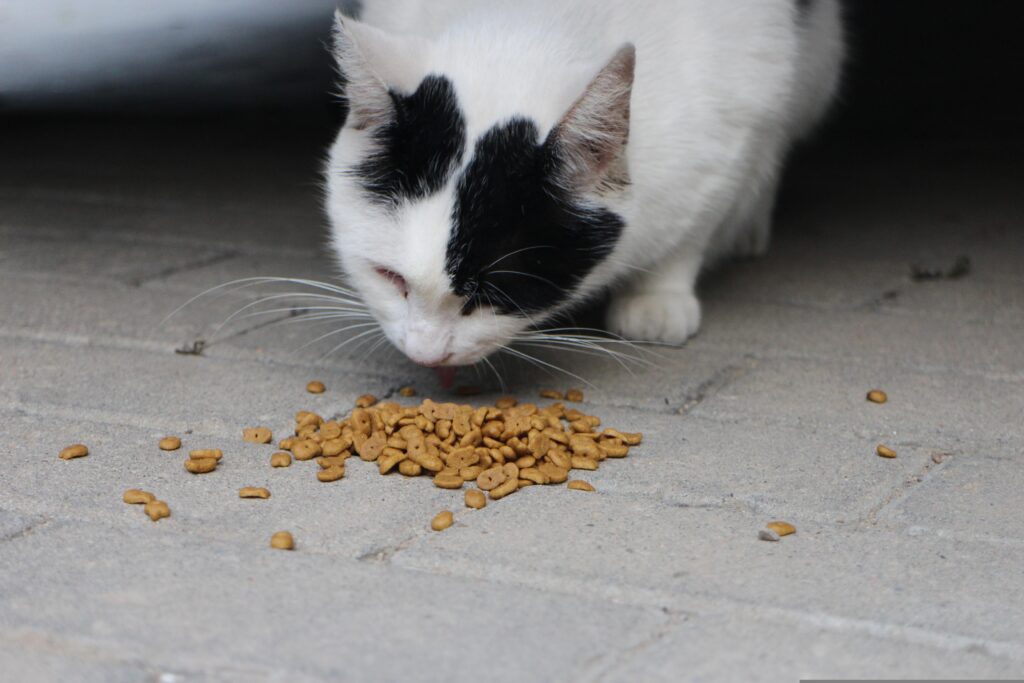
Healthy Bite 🐱 – Nutrition and Dental Care for Cats
A cat’s overall health is strongly linked to what it eats and how well its teeth and gums are maintained. The phrase “Healthy Bite” represents not only the importance of proper nutrition but also the need for strong oral hygiene, both of which are often overlooked in feline care. Many cat owners focus on grooming and play but underestimate how much diet and dental health influence a cat’s energy, mood, and life span. In this guide, we’ll explore the essentials of feeding your cat properly and keeping its mouth clean, so those little bites remain healthy for years to come.
Nutrition – Building Blocks of Health
Cats are obligate carnivores, meaning they require animal-based protein as the main part of their diet. Unlike dogs, cats cannot survive on a plant-based diet because their bodies lack the ability to produce certain amino acids on their own. One of the most critical of these is taurine, which supports eye health, heart function, and reproduction. Without sufficient taurine, cats may suffer from vision problems, heart disease, and general weakness.
High-quality commercial cat food is usually the best option, as it is formulated with the right balance of protein, fats, vitamins, and minerals. Kittens need protein-rich food to support rapid growth, while adult cats require a balanced formula to maintain energy and muscle health. Senior cats may need food designed for joint support and easier digestion. Choosing age-appropriate food is essential for long-term wellness.
Hydration is equally important. Cats naturally drink less water than they need, which often leads to urinary tract problems. Providing fresh, clean water at all times is vital. Many cats prefer moving water, so a pet fountain can encourage them to drink more. Wet food can also supplement hydration, especially for cats prone to kidney or bladder issues.
Dental Health – The Other Side of the Bite
When it comes to cat care, dental hygiene is often ignored. However, poor dental health can lead to serious problems such as gum infections, tooth loss, and even kidney or heart disease, as bacteria from the mouth can spread throughout the body.
One of the best ways to maintain dental health is regular brushing. Using a toothbrush and toothpaste specifically designed for cats helps reduce plaque buildup. While not all cats tolerate brushing at first, with patience and gradual training, many adapt over time. For cats that resist brushing, dental treats and special diets formulated to reduce tartar can be helpful.
Annual veterinary checkups should always include a dental exam. In many cases, professional cleaning under anesthesia is necessary to remove hardened tartar and treat gum disease. Early intervention prevents painful conditions and improves overall health.
Signs of Dental Problems
Recognizing symptoms of poor oral health is essential. Common warning signs include:
Bad breath
Red or swollen gums
Difficulty chewing or dropping food while eating
Pawing at the mouth
Excessive drooling
If you notice any of these symptoms, a veterinary visit is necessary. Ignoring them can lead to severe infections and discomfort for your cat.
Feeding Habits and Portion Control
Healthy bites are not just about what cats eat but also how much. Overfeeding leads to obesity, which increases the risk of diabetes, arthritis, and liver disease. Measuring portions according to your cat’s age, weight, and activity level helps maintain a healthy balance. Avoid feeding too many treats or table scraps, as these can upset the nutritional balance and contribute to weight gain.
Interactive feeding, such as puzzle feeders, is another effective way to support health. These not only slow down eating and prevent overeating but also provide mental stimulation that mimics natural hunting behavior.
Comfort and Emotional Impact of Healthy Eating
A cat that eats well and feels no dental discomfort is naturally more active, playful, and affectionate. On the other hand, poor diet or dental pain often results in lethargy, irritability, and loss of interest in activities. Ensuring your cat enjoys every meal comfortably strengthens the bond between you and your pet while giving it a happier, healthier life.
Conclusion
“Healthy Bite” is about more than feeding a cat—it is about ensuring every bite supports health, strength, and comfort. By providing high-quality food, maintaining hydration, monitoring portion sizes, and practicing dental care, you protect your cat from preventable illnesses and extend its quality of life. Regular vet visits, brushing, and awareness of oral health symptoms can make the difference between a cat that merely survives and one that thrives.
When your cat has a truly healthy bite, it enjoys every meal, stays energetic, and greets you with bright eyes and a playful spirit. Nutrition and dental care together form the foundation of feline wellness, making “Healthy Bite” one of the most important aspects of responsible cat ownership.
